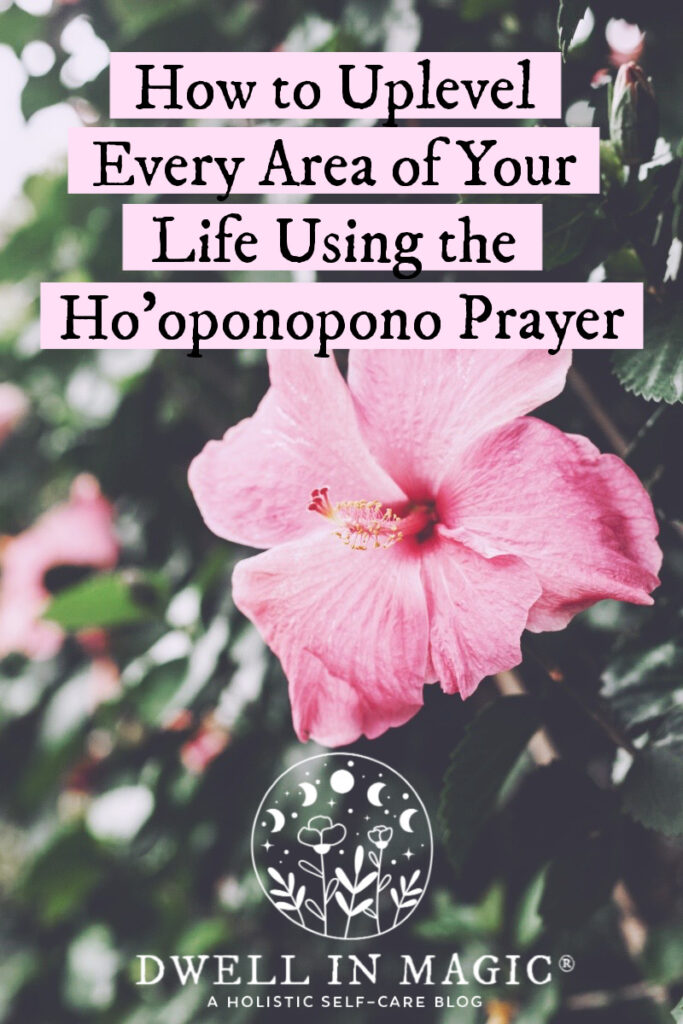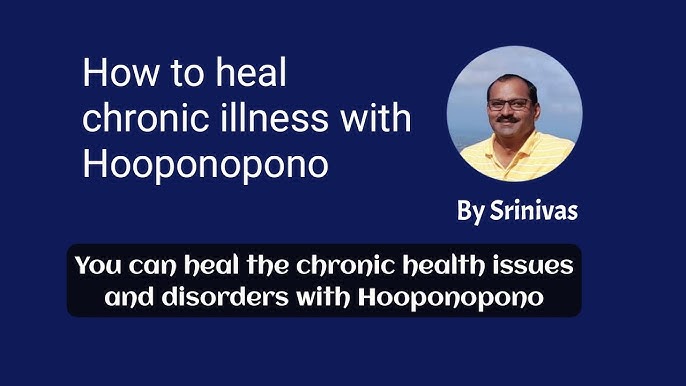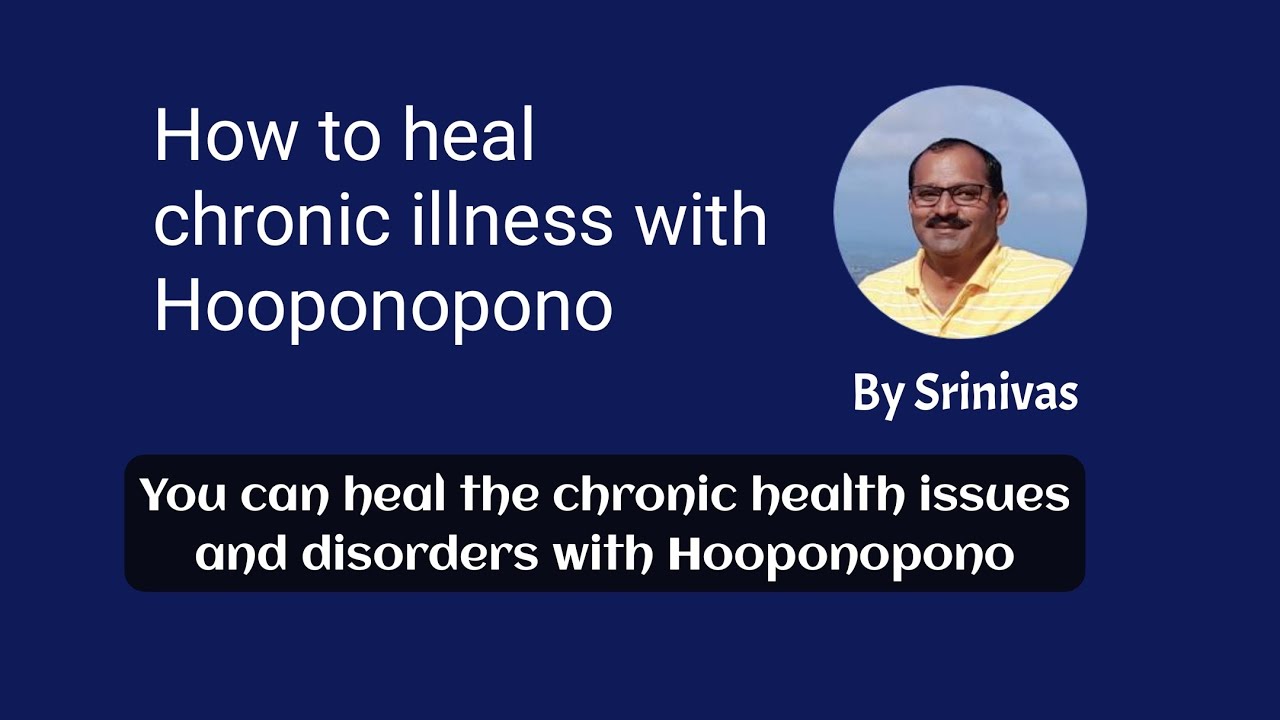If you’re seeking relief from chronic illnesses, you may have come across a powerful practice known as Ho’oponopono. But can this ancient Hawaiian healing technique truly assist in managing and even healing chronic conditions? In this article, we explore the potential benefits and validity of Ho’oponopono as a complementary therapy for those living with long-term health challenges. By delving into its principles and techniques, we aim to shed light on whether Ho’oponopono holds the key to a more balanced and vibrant life amidst chronic illness.
What is Ho’oponopono?
Ho’oponopono is an ancient Hawaiian healing practice that focuses on reconciliation, forgiveness, and restoration of harmony within oneself and with others. The word “Ho’oponopono” can be translated as “to make right” or “to correct a mistake.” It is deeply rooted in the Hawaiian culture and has been passed down through generations as a means to heal and restore relationships.
Origins of Ho’oponopono
Ho’oponopono originated in the indigenous Hawaiian culture, where it was traditionally practiced within families, clans, and communities. It was primarily used to resolve conflicts and restore balance within the social fabric of the community. The practice has evolved over time and has gradually gained recognition and applicability in various domains, including personal growth, self-healing, and spiritual development.
Meaning of Ho’oponopono
The essence of Ho’oponopono lies in the belief that our experiences and perceptions are shaped by our thoughts, emotions, and beliefs. When there is disharmony or a sense of imbalance within ourselves or in our relationships, it is believed that these imbalances manifest as physical and emotional ailments. Ho’oponopono aims to address these imbalances by taking responsibility for our own thoughts and emotions, and by seeking forgiveness and reconciliation.
Key principles of Ho’oponopono
There are four key principles that form the foundation of Ho’oponopono:
-
Taking Responsibility: Ho’oponopono emphasizes the importance of acknowledging and taking responsibility for one’s own thoughts, emotions, and actions. By recognizing our role in creating imbalances, we become empowered to initiate the healing process.
-
Seeking Forgiveness: Forgiveness is a central aspect of Ho’oponopono. By seeking forgiveness from ourselves, others, and the Divine, we aim to release emotional baggage and restore harmony within ourselves and in our relationships.
-
Gratitude: Gratitude is considered a transformative force in Ho’oponopono. By expressing gratitude for the challenges and experiences that have shaped us, we open ourselves to healing and personal growth.
-
Letting Go: Letting go is an essential aspect of Ho’oponopono. It involves releasing attachment to negative emotions, past traumas, and grievances, allowing space for healing and positive transformation.
Understanding Chronic Illnesses
Definition of chronic illnesses
Chronic illnesses are long-term medical conditions that persist over an extended period, typically lasting longer than three months. They may cause physical, emotional, and functional limitations that can significantly impact an individual’s quality of life. Examples of chronic illnesses include diabetes, heart disease, autoimmune disorders, and chronic pain conditions.
Types of chronic illnesses
Chronic illnesses encompass a wide range of medical conditions that vary in their causes, symptoms, and treatments. They can affect different organ systems in the body and may require ongoing medical management. Some common types of chronic illnesses include:
- Cardiovascular diseases: Conditions that affect the heart and blood vessels, such as coronary artery disease, congestive heart failure, and hypertension.
- Respiratory diseases: Chronic conditions that affect the lungs and airways, including asthma, chronic obstructive pulmonary disease (COPD), and cystic fibrosis.
- Neurological disorders: Conditions that affect the brain, spinal cord, and nerves, such as multiple sclerosis, Parkinson’s disease, and epilepsy.
- Autoimmune diseases: Disorders in which the immune system mistakenly attacks healthy cells and tissues, such as rheumatoid arthritis, lupus, and Crohn’s disease.
- Mental health conditions: Chronic psychological disorders, including depression, anxiety disorders, bipolar disorder, and schizophrenia.
Causes of chronic illnesses
The causes of chronic illnesses can vary depending on the specific condition. Some factors that contribute to the development of chronic illnesses include:
- Genetic predisposition: Certain chronic illnesses have a hereditary component, meaning they can be passed down through families.
- Environmental factors: Exposure to environmental toxins, pollutants, or infectious agents can increase the risk of developing chronic illnesses.
- Lifestyle choices: Poor lifestyle habits such as an unhealthy diet, sedentary behavior, smoking, and excessive alcohol consumption can contribute to the development of chronic illnesses.
- Aging: Many chronic illnesses become more prevalent with age, as the body’s natural processes begin to decline.
Effects of chronic illnesses
Chronic illnesses can have a significant impact on an individual’s physical, emotional, and social well-being. The effects can vary depending on the specific condition, but common consequences of chronic illnesses include:
- Physical limitations: Chronic illnesses can cause pain, fatigue, decreased mobility, and limitations in performing daily activities.
- Emotional distress: Dealing with the challenges of a chronic illness can lead to feelings of frustration, sadness, anxiety, and depression.
- Social isolation: The limitations caused by chronic illnesses can result in reduced social interactions, leading to feelings of loneliness and isolation.
- Financial burden: The costs associated with medical treatments, medications, and lifestyle modifications can place a significant financial strain on individuals and their families.

The Connection between Ho’oponopono and Chronic Illnesses
Using Ho’oponopono as a Complementary Therapy
Ho’oponopono can be utilized as a complementary therapy alongside conventional medical treatments for chronic illnesses. By addressing the emotional and spiritual aspects of healing, Ho’oponopono may enhance the overall well-being of individuals living with chronic illnesses. It can provide a framework for self-reflection, forgiveness, and release of negative emotions, ultimately contributing to a more holistic approach to healing.
Ho’oponopono and Stress Reduction
Stress is a common factor that can exacerbate the symptoms and progression of chronic illnesses. Ho’oponopono offers techniques for stress reduction and emotional regulation, which can have a positive impact on individuals coping with chronic illnesses. Through practices such as meditation, deep breathing, and mantra repetition, Ho’oponopono helps to calm the mind, relax the body, and reduce stress levels.
Promoting Mind-Body Connection with Ho’oponopono
The mind-body connection plays a crucial role in overall health and well-being. Ho’oponopono recognizes this connection and emphasizes the importance of cultivating a harmonious relationship between the mind and body. By practicing self-awareness, mindfulness, and self-compassion, individuals can enhance their mind-body connection, which may positively influence the management of chronic illnesses.
Scientific Research and Ho’oponopono
Exploring Studies on Ho’oponopono and Chronic Illnesses
Scientific research on Ho’oponopono and its direct effects on chronic illnesses is limited. However, there is growing interest in the field of mind-body medicine and the potential benefits of holistic healing practices for chronic illness management. Studies on related practices such as meditation and mindfulness have shown promising results in reducing stress, improving emotional well-being, and enhancing the overall quality of life for individuals with chronic illnesses.
Potential Benefits of Ho’oponopono on Chronic Illnesses
While more research is needed, some potential benefits of incorporating Ho’oponopono into chronic illness management include:
- Stress reduction: Ho’oponopono techniques can help individuals manage stress levels associated with chronic illnesses, potentially improving overall well-being.
- Emotional healing: Ho’oponopono’s emphasis on forgiveness, gratitude, and letting go of negative emotions may contribute to emotional healing and improved mental health outcomes.
- Enhanced self-awareness: Practicing Ho’oponopono can cultivate self-awareness, allowing individuals to recognize and address the underlying emotional and psychological aspects that may contribute to the development or exacerbation of chronic illnesses.

Applying Ho’oponopono for Chronic Illness Management
Practical Steps of Ho’oponopono Practice
To apply Ho’oponopono for chronic illness management, consider the following practical steps:
- Self-Reflection: Take time to reflect on your thoughts, beliefs, and emotions related to your chronic illness. Acknowledge any negative patterns or emotions that may be hindering your healing process.
- Taking Responsibility: Accept responsibility for your thoughts and emotions surrounding your chronic illness. Recognize that you have the power to heal and restore balance within yourself.
- Seek Forgiveness: Forgive yourself for any negative thoughts, self-blame, or judgments regarding your chronic illness. Extend forgiveness to others who may have contributed to your challenges.
- Express Gratitude: Cultivate gratitude for the lessons and opportunities for growth that your chronic illness has presented. Express gratitude for the body’s innate healing abilities.
- Letting Go: Release attachment to negative emotions, past traumas, and grievances. Allow space for healing, acceptance, and positive transformation.
Seeking Guidance from Ho’oponopono Practitioners
While it is possible to practice Ho’oponopono on your own, seeking guidance from experienced Ho’oponopono practitioners can provide additional support and insights. These practitioners can offer personalized guidance on implementing Ho’oponopono techniques and help tailor the practice to your specific needs and circumstances. They can assist in navigating the emotional challenges that may arise during the healing process and provide a safe and supportive environment.
Personal Experiences and Testimonials
Stories of Individuals who Have Used Ho’oponopono for Chronic Illnesses
Many individuals with chronic illnesses have reported positive experiences with Ho’oponopono. While personal anecdotes cannot be considered as scientific evidence, they offer insight into the potential impact of Ho’oponopono on chronic illness management. Stories of individuals who have used Ho’oponopono for their chronic illnesses often highlight the transformative power of forgiveness, gratitude, and self-responsibility in the healing process.
Sharing Personal Testimonials
Personal testimonials can provide encouragement and motivation for those seeking alternative approaches to chronic illness management. It is essential to approach personal testimonials with an open mind and recognize that individual experiences may vary. Hearing from others who have found relief and improved well-being through Ho’oponopono can inspire individuals to explore this healing practice as a complement to their existing treatment plans.

Critics and Limitations of Ho’oponopono
Critiques of Ho’oponopono as a Valid Healing Technique
Critics of Ho’oponopono argue that the lack of scientific evidence to support its effectiveness raises questions about its validity as a healing technique. They suggest that the mechanisms of action proposed by Ho’oponopono may be based more on belief and placebo effects rather than verifiable physiological or psychological processes. Additionally, skeptics question the generalizability of Ho’oponopono beyond the cultural context in which it originated.
Limitations of Ho’oponopono in Dealing with Chronic Illnesses
Ho’oponopono, like any other healing practice, has its limitations. It is important to recognize that Ho’oponopono should not replace conventional medical treatments for chronic illnesses. Instead, it can be used as a complementary approach to support overall well-being. It is crucial to work in collaboration with healthcare professionals to ensure that appropriate medical care is received alongside Ho’oponopono practices.
Alternative Healing Modalities for Chronic Illnesses
Other Healing Practices for Chronic Illnesses
In addition to Ho’oponopono, numerous other alternative healing modalities can be explored for chronic illness management. Some common practices include:
- Meditation: A practice that promotes relaxation, stress reduction, and overall well-being through focused attention and mindfulness.
- Acupuncture: An ancient Chinese therapy that involves the insertion of fine needles into specific points of the body to restore balance and promote healing.
- Reiki: A Japanese energy healing technique that aims to balance the body’s energy and promote physical, emotional, and spiritual healing.
- Yoga: A mind-body practice that combines physical postures, breath control, and meditation to enhance strength, flexibility, and relaxation.
- Herbal Medicine: The use of plants and their components for medicinal purposes, often prescribed in the form of teas, tinctures, or capsules.
Comparing Ho’oponopono with Other Alternative Therapies
While Ho’oponopono shares similarities with other alternative therapies, such as mindfulness and meditation, it possesses its own unique cultural and spiritual foundation. The choice of alternative healing modality ultimately depends on individual preferences, beliefs, and resonance with the specific practice. It may be beneficial to explore multiple approaches and determine which resonates most with personal values and needs.

Recommendations for Incorporating Ho’oponopono
When and How to Integrate Ho’oponopono into Chronic Illness Treatment
When considering integrating Ho’oponopono into chronic illness treatment, it is important to consult with healthcare professionals and ensure that it aligns with the overall treatment plan. Ho’oponopono can be practiced alongside medical treatments, as a complementary approach, and is ideally suited for individuals seeking a holistic and mind-body-spirit approach to healing. It is important to start gradually and practice consistently to reap the potential benefits.
Seeking Professional Advice
Seeking professional advice from certified Ho’oponopono practitioners or holistic healthcare providers who specialize in chronic illness management can provide valuable guidance and support. These professionals can assess individual needs, offer personalized strategies, and provide ongoing assistance throughout the healing journey.
Conclusion
While scientific research on Ho’oponopono and its direct effects on chronic illnesses is limited, the practice holds potential as a complementary therapy for individuals living with chronic illnesses. By addressing the emotional and spiritual aspects of healing, Ho’oponopono offers a framework for self-reflection, forgiveness, and release of negative emotions. It can promote stress reduction, enhance the mind-body connection, and contribute to overall well-being. However, it is important to recognize the limitations of Ho’oponopono and the need for collaboration with healthcare professionals for comprehensive chronic illness management. The journey to healing is unique for each individual, and exploring alternative approaches with an open mind can empower individuals to take an active role in their well-being.

